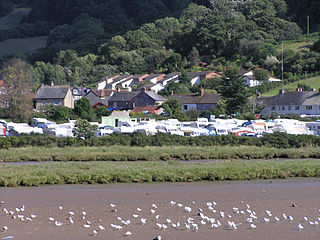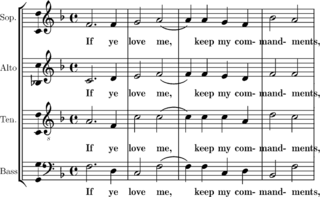External links
| Medieval music | |||||
|---|---|---|---|---|---|
| Renaissance music | |||||
| Modern instituions |
| ||||
| Modern publications |
| ||||
| Related | |||||
| | This Medieval music-related article is a stub. You can help Wikipedia by expanding it. |
The Digital Image Archive of Medieval Music (DIAMM) is a non-profit academic service provider. It is the only complete listing of all medieval and early modern manuscripts of European polyphonic music. It is founded on a digital archive of images of European medieval and early modern polyphonic music ranging from complete manuscripts to fragments. [1] The collection, created by the University of Oxford and Royal Holloway University of London, [2] includes metadata for all manuscripts from 800 to 1550 A.D., and most of those from 1550 to 1650, with images for about 20% of the sources. The image collection is added to on a regular basis thanks to donations from libraries and collaborations with projects who acquire images and are able to donate them to DIAMM for display.
The project has recently benefited from collaborations with two AHRC-funded projects: Sources of British Song (contributing images of manuscripts of monophonic song c. 1150-1300. The project uses sub-pages on DIAMM for its website) and Tudor Partbooks (contributing images of all Tudor partbooks dating from c. 1500 to c. 1630).
DIAMM relies primarily on grant funding and donations from users for its maintenance. The project is currently not funded, and is maintained on a voluntary basis. It has recently founded DIAMM Publications, which produces high-quality colour facsimiles of manuscripts in the image collection accompanied by academic introductory studies by leaders in their fields, without the considerable markup of conventional publishers. The income from publications is largely put back into other publications, but is also available to support the online resource when funds are urgently required.
John Sheppard was an English composer of the Renaissance.

The Roman de Fauvel is a 14th-century French allegorical verse romance of satirical bent, generally attributed to Gervais du Bus, a clerk at the French royal chancery. The original narrative of 3,280 octosyllabics is divided into two books, dated to 1310 and 1314 respectively, during the reigns of Philip IV and Louis X. In 1316–7 Chaillou de Pesstain produced a greatly expanded version.

The Eton Choirbook is a richly illuminated manuscript collection of English sacred music composed during the late 15th century. It was one of very few collections of Latin liturgical music to survive the Reformation, and hence is an important source. It originally contained music by 24 different composers; however, many of the pieces are damaged or incomplete. It is one of three large choirbooks surviving from early-Tudor England.

The Winchester Troper refers to two eleventh-century manuscripts of liturgical plainchant and two-voice polyphony copied and used in the Old Minster at Winchester Cathedral in Hampshire, England. The manuscripts are now held at Cambridge, Corpus Christi College 473 and Oxford, Bodleian Library Bodley 775 . The term "Winchester Troper" is best understood as the repertory of music contained in the two manuscripts. Both manuscripts contain a variety of liturgical genres, including Proper and Ordinary chants for both the Mass and the Divine Office. Many of the chants can also be found in other English and Northern French tropers, graduals, and antiphoners. However, some chants are unique to Winchester, including those for local saints such as St. Æthelwold and St. Swithun, who were influential Bishops of Winchester in the previous centuries. Corpus 473 contains the most significant and largest surviving collection of eleventh-century organum. This polyphonic repertoire is unique to that manuscript.

Axmouth is a village, civil parish and former manor in the East Devon district of Devon, England, near the mouth of the River Axe. The village itself is about 1 mile (1.6 km) inland, on the east bank of the Axe estuary. The parish extends along the estuary to the sea, and a significant distance to the east. The village is near Seaton and Beer which are on the other side of the Axe estuary. According to the 2001 census the parish had a population of 493.
The Rossi Codex is a music manuscript collection of the 14th century. The manuscript is presently divided into two sections, one in the Vatican Library and another, smaller section in the Northern Italian town of Ostiglia. The codex contains 37 secular works including madrigals, cacce and, uniquely among trecento sources, monophonic ballatas. The codex is of great interest for trecento musicologists because for many years it was considered the earliest source of fourteenth-century Italian music. Although other pre-1380 sources of secular, polyphonic, Italian music have now been identified, none are nearly so extensive as the Rossi Codex.
Robert Parsons was an English composer of the Tudor period who was active during the reigns of King Edward VI, Queen Mary I and Queen Elizabeth I. He is noted for his compositions of church music.

William Mundy was a Renaissance English composer of sacred music and father of composer John Mundy. Over four hundred years after his death, William Mundy's music is still performed and recorded.
Margaret Bent CBE, is an English musicologist who specializes in music of the late medieval and Renaissance eras. In particular, she has written extensively on the Old Hall Manuscript, English masses as well as the works of Johannes Ciconia and John Dunstaple.
The Gyffard Partbooks are an important set of English Renaissance choral partbooks, containing pieces by composers such as Thomas Tallis and John Sheppard, as well as additional unnamed composers, which are not found in other sources.
The Dow Partbooks are a collection of five partbooks compiled by Robert Dow in Oxford around 1581–88. The collection includes mostly choral but also some instrumental pieces. At the end is an instrumental La gamba and a canon, both a 3 and apparently copied from Vincenzo Ruffo's book printed in Milan in 1564.
P. des Molins, probably Pierre des Molins, was a French composer-poet in the ars nova style of late medieval music. His two surviving compositions – the ballade De ce que fol pensé and rondeau Amis, tout dous vis – were tremendously popular as they are among the most transmitted pieces of fourteenth-century music. The ballade is found in 12 medieval manuscript sources and featured in a c. 1420 tapestry; the rondeau is found in 8 sources and referenced by the Italian poet Simone de' Prodenzani. Along with Grimace, Jehan Vaillant and F. Andrieu, Molins was one of the post-Guillaume de Machaut generation whose music shows few distinctly ars subtilior features, leading scholars to recognize Molins's work as closer to the ars nova style of Machaut.

Drexel 4180–4185 is a set of six manuscript partbooks copied in Gloucester, England, containing primarily vocal music dating from approximately 1615-1625. Considered one of the most important sources for seventeenth century English secular song, the repertoire included represents a mixture of sacred and secular music, attesting to the partbooks' use for entertainment and pleasure, rather than exclusively for liturgical use.

Osbert Parsley was an English Renaissance composer and singer. Few details of his life are known, although he evidently married in 1558 and lived for a period in the parish of St Saviour's Church, Norwich.
The Forrest-Heyther partbooks are a set of six manuscript partbooks copied in England in the sixteenth century. They are an important source of polyphonic Mass Ordinary settings by composers from the reign of Henry VIII, including John Taverner and Robert Fayrfax.

Edward Paston (1550–1630), second son of Sir Thomas Paston, was a Catholic gentleman of Norfolk, a poet, and amateur musician living in the reign of Elizabeth I. He is an important figure in the musical history of England, his love of music driving him to acquire and copy musical manuscripts from some of the most important composers of the Renaissance, resulting in a unique performing collection of 16th-century house music that included works by William Byrd, Thomas Tallis, John Taverner, and Orlando di Lasso. He was especially interested in Byrd, and one of his books is the largest source of consort songs by that composer. Paston played the lute, creating a wide range of vocal settings and accompanying tablatures in partbooks that are still obtainable. As a young man he travelled extensively in Spain, being influenced by the Spanish form of tablature, as seen in his partbooks, rather than the generally used French form.
The Peterhouse partbooks are a collection of English partbooks dating from the sixteenth and seventeenth centuries. They are named "Peterhouse" after Peterhouse in Cambridge, where the books were kept for some time, and are now preserved in the Cambridge University Library. They are handwritten manuscripts, all written on paper. At some point in the mid-eighteenth century, the books were rebound, although the foliation and indices remained unchanged.

The Oxford Book of Tudor Anthems is a collection of vocal scores of music from the Tudor era of England (c.1550-1625). It was published in 1978 by Oxford University Press and was compiled by the organist and publisher Christopher Morris (1922-2014), the editor of OUP who also was involved with the popular Carols for Choirs series of books in the 1970s. The preface is written by Sir David Willcocks.

"If ye love me" is a four-part motet or anthem by the English composer Thomas Tallis, a setting of a passage from the Gospel of John. First published in 1565 during the reign of Elizabeth I, it is an example of Tudor music and is part of the repertoire of Anglican church music. An early homophonic motet in English, it is frequently performed today, and has been sung at special occasions including a papal visit and a royal wedding.

The Selden Carol Book is a medieval carol manuscript held by the Bodleian Library in Oxford. Along with the Trinity Carol Roll, with which it shares five contemporaneous carols and texts, it is one of the main sources for 15th century English carols, and like the Trinity Roll contains the music as the well as the texts. The inclusion of Deo Gracias Anglia referencing Henry V's victory at Agincourt in 1415 gives an indication of the date of composition of the carols.